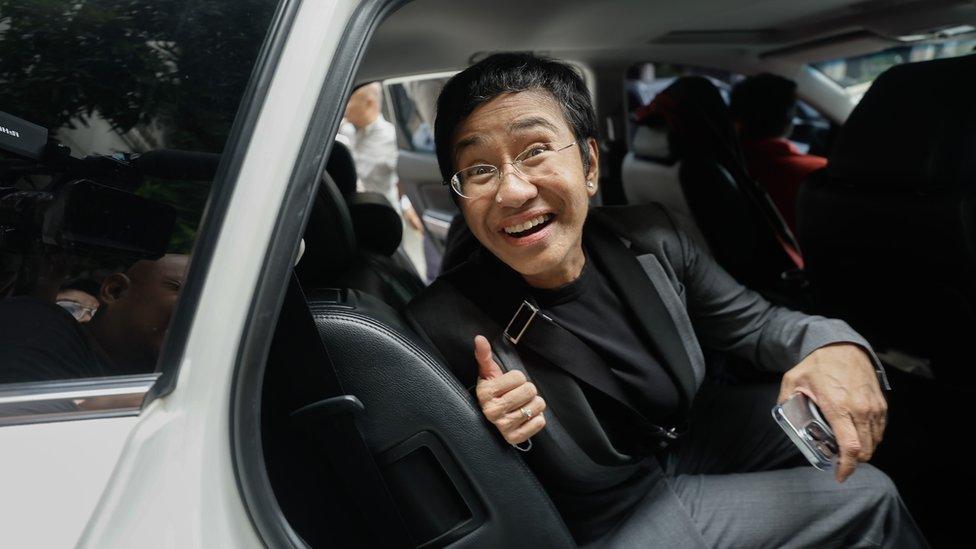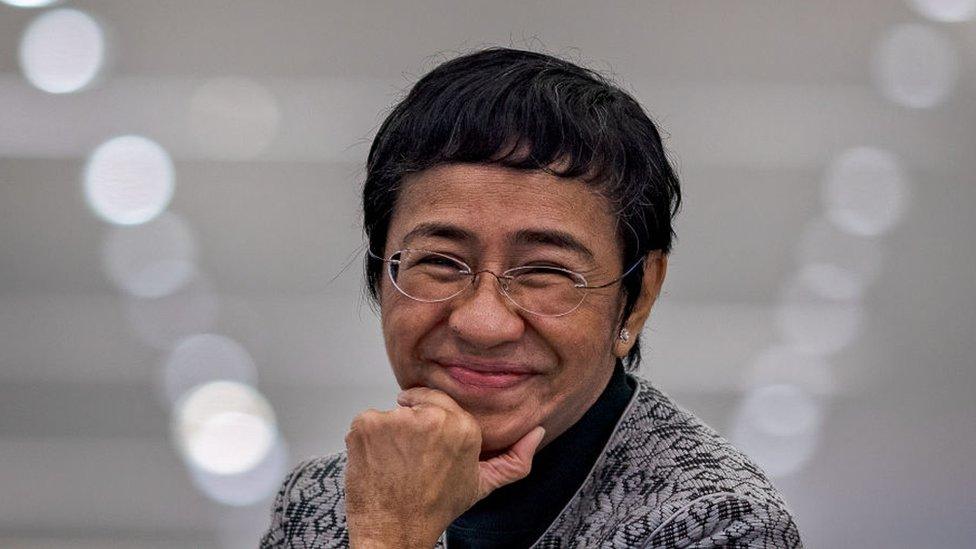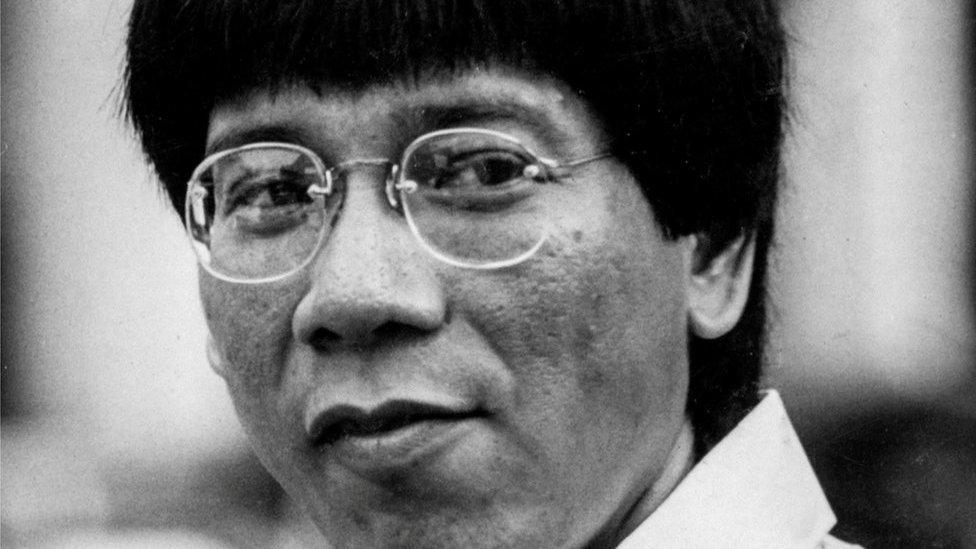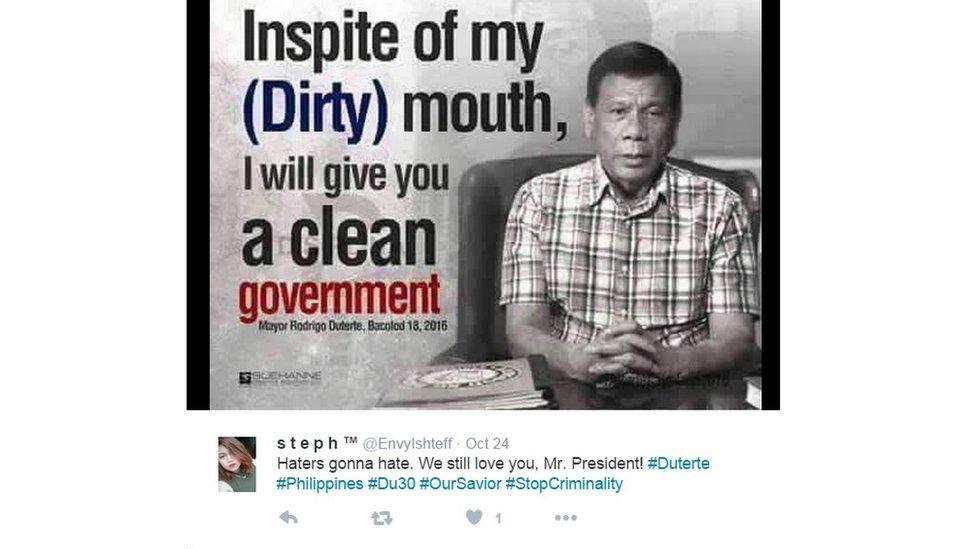Maria Ressa: Philippines Nobel laureate acquitted in court
- Published

The Nobel Prize winner has maintained that the charges against her are fabricated
Nobel laureate Maria Ressa has been acquitted in the last of five tax evasion cases filed against her in the Philippines, in what is being hailed as a win for press freedom.
"You know the song of our generation? You got to have faith," she told the BBC.
All the cases were lodged during former president Rodrigo Duterte's term.
Ms Ressa's news website Rappler published reports criticising his bloody war on drugs
She won the Nobel Peace Prize in 2021 for her fearless reporting in the face of growing authoritarianism in the Philippines, an honour she shared with Russian journalist Dmitry Muratov.
"Journalism is the antidote to tyranny," she told the BBC.
Mr Duterte, who stepped down in June 2022, faces an investigation by the International Criminal Court in The Hague for "crimes against humanity" over thousands of deaths linked to his anti-narcotics campaign.
"This is a victory not just for Rappler but for everyone who has kept the faith that a free and responsible press empowers communities and strengthens democracy," Rappler said in a statement on Ms Ressa's acquittal last Monday.
A tax evasion conviction would have landed Ms Ressa in prison for up to 34 years. The cases stemmed from the 2015 sale of Philippine depositary receipts, which is a way for companies to raise money from foreign investors.
But the 59-year-old is still appealing the verdict in a separate cyber-libel case, where she was convicted and sentenced to a seven-year jail term. She is currently out on bail.
Rappler is also challenging a shutdown order from the Philippine Securities and Exchange Commission for allegedly violating a constitutional prohibition against foreign investments in local media.
"(The acquittal) took too long (but) it validates our position from the beginning that these cases are political harassment against Rappler," Ms Ressa told the BBC.
Attacks against journalists in the Philippines and around the world "doesn't end", she said.
"It is part of information warfare. It is used by those in power to consolidate power. On social media, lies spread six times faster than facts."
She added: "Our information ecosystems are so tainted that we are walking into battle handcuffed."
Ms Ressa noted that since Mr Duterte left office, the vitriol against journalists and other public figures on Philippine social media has not been as organised.
However the spread of disinformation has advanced beyond trolling and fake accounts to hacking of search algorithms, she warned.
Ms Ressa also expressed concern over the possible use of generative artificial intelligence and the reorganisations of social media giants Meta and X, formerly Twitter.
"Given the patterns we've been seen right now, 2024 will be significantly worse," she said, adding that the year will be a "tipping point for democracy" with elections scheduled in Taiwan, India and Indonesia.
Related topics
- Published18 January 2023

- Published30 June 2022

- Published7 December 2016
